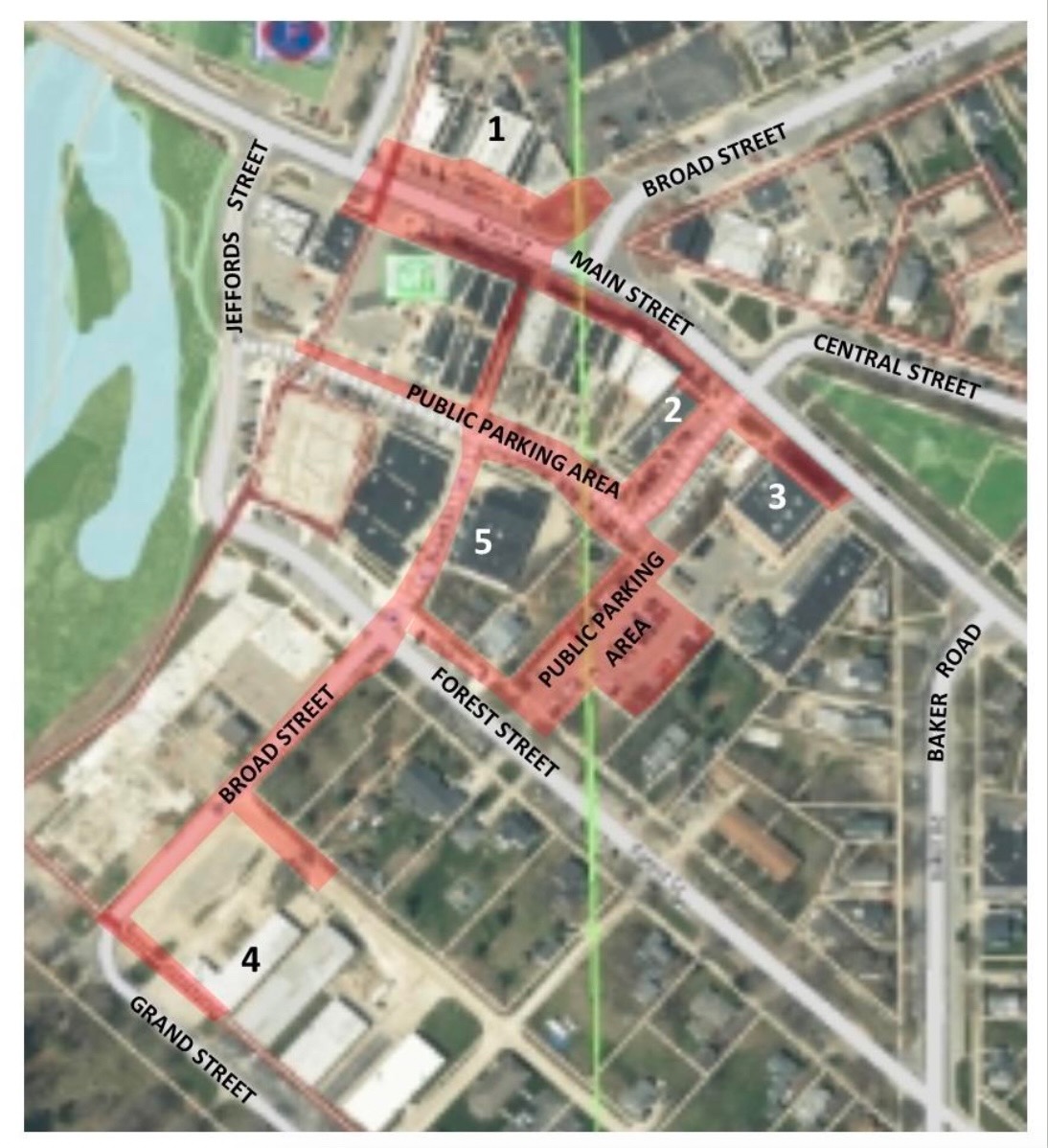No Action Taken as Council Weighs Costs, Risks, and Community Impact
Photo: Freight train on Dexter-Chelsea Road headed towards Dexter. Photo by Doug Marrin.
At its December 9, 2024, meeting, the Dexter City Council discussed the possibility of establishing a railroad quiet zone within the city. A train quiet zone is a designated area where train engineers are not to sound horns at crossings, provided certain safety measures are in place to compensate for the absence of the audible warning.
Mayor Shawn Keough highlighted that implementing a quiet zone would require significant infrastructure updates, including pedestrian gates and median curbs to ensure safety. He also emphasized concerns about costs and liability, adding, “The railroad will let us pay for those and upgrade all those intersections so that all that can happen. The worst part, though, is for the benefit of paying for those, we have to share in the liability if there’s an accident.”
Councilmember Sanam Aldag voiced reservations regarding accessibility and resident awareness when choosing homes near railroads. “If somebody is purchasing a home or building a home next to the railroad, it’s with the understanding that trains will go through it,” she said. Aldag also noted that removing auditory warnings could impact individuals who rely on sound for safety.
Councilmember Wa Hubbard offered a different perspective, stating, “I personally think it sort of adds to the small-town feel of Dexter… I don’t think this is a good use for budget money.”
Larry Bowron, an OHM consultant, provided technical insight, clarifying that some sounds—such as crossing bells—would remain, even if the train horns ceased. He reassured the council regarding liability concerns: “[The code] was specifically written in a manner to limit liability for any municipality or road authority that implements a quiet zone.” However, Keough pointed out a distinction, stating that while liability might be limited, it would not be eliminated entirely.
Bowron added that perspectives often shift after implementation: “People are like, ‘We didn’t know what we were living with,’” pointing to the noticeable reduction in noise as a major benefit. He also noted that quiet zones could be particularly impactful for residents who work shift schedules, saying, “If somebody’s working shift work and they’re trying to sleep during the day, that could be very disruptive to them.”
Dexter experiences eight trains through the day and two at night.
Bowron emphasized the positive impact quiet zones can have on a community’s quality of life. He shared his experience with other municipalities, stating, “My experience has been that it’s a huge quality-of-life issue, and it’s amazing what the comments you get from a community once the project’s done. A lot of folks who were suspect— ‘Oh, I love the train horn’—have changed their minds.”
The council also discussed potential costs, logistical challenges with pedestrian crossings, and proximity issues with driveways. The discussion concluded without any immediate action.






 8123 Main St Suite 200 Dexter, MI 48130
8123 Main St Suite 200 Dexter, MI 48130


